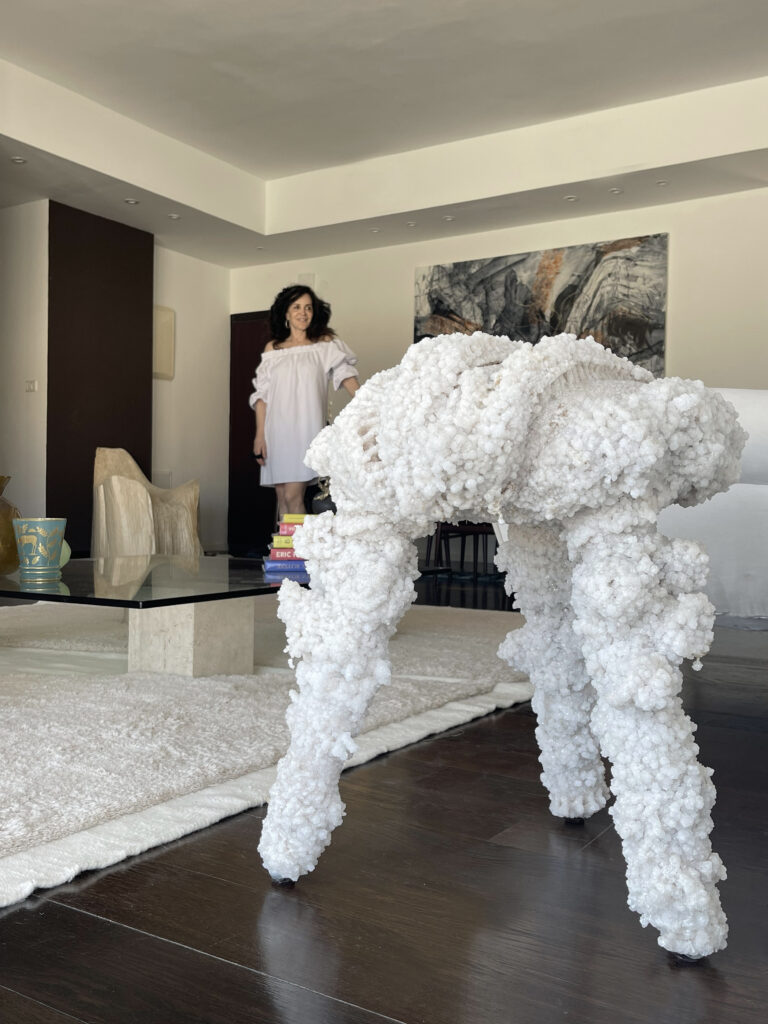
Bringing a new piece home is always a celebration. With every piece added to your collection comes the opportunity to add a piece that is a meaningful and important part of your narrative, each piece a player in your family story. That is to say, every addition should manifest design at its best; design that pushes boundaries and captures the zeitgeist. The new addition to our home is totem-shaped stool from the series Bleached by Israeli designer Erez Nevi Pana (represented by Friedman Benda). The fact that this object started its life on the lowest point on Earth, the Dead Sea, gives it a magical quality.
It is essential that you connect with every piece you bring home on both a personal and emotional level; it must represent not just your taste, but also your ethics and ideals so that you feel it in your heart. This was my experience with Bleached. This series has come to analyze and solve political issues—design in the service of society and the planet. “As a designer,” Nevi Pana told me, “it’s my duty to look critically at modern society, to make an assessment, point to a problem, and offer a personal or professional solution, interpretation, a way out.” Without encompassing contemporary values, aesthetics, and narratives, design has no chance of entering the pantheon of history.
Bleached comes to address current and urgent issues related to the Dead Sea and to its impact on the health of the planet, where the vegan designer has found his ultimate playground. Being at 432 meters below sea level, life is unsustainable—no water organisms, no plants. The new reality of the Dead Sea is that the most unwanted substance is salt. How did this happen? The Dead Sea Works factory, a private company which has taken over the salty basin — for the sake of commercial success — has been engaged with excavation of potash, which is utilized worldwide for fertilizers in agriculture. In the process of mining, the by-product (salt) has been left in the water and has formed into enormous rocks of salt at the bottom of the sea, changing the formerly natural balanced landscape of the Dead Sea.
I learned that with each year, millions of tons of salt sink to the bottom of the Dead Sea, causing damage to the environment and resulting in the rising water level, pushed by the rocks underwater. Scientists and environmentalists employed by the company have been occupied with finding solutions, but so far nothing has helped to improve or reverse this situation. With Bleached, Nevi Pana is proposing a solution: trough design. He creates objects out of recycled wood that is covered with luffa—a natural sponge of the gourd family—which acts as an engine to absorb the salt. The object then becomes a habitat for the growing crystals, leaving pieces of design, which are beautiful, sustainable, and contribute to the health of the environment.
This is what I call ‘good’ contemporary design. Now it sits at home; we are eager to live with it and for it to enlighten and inspire our lives. Everyday.
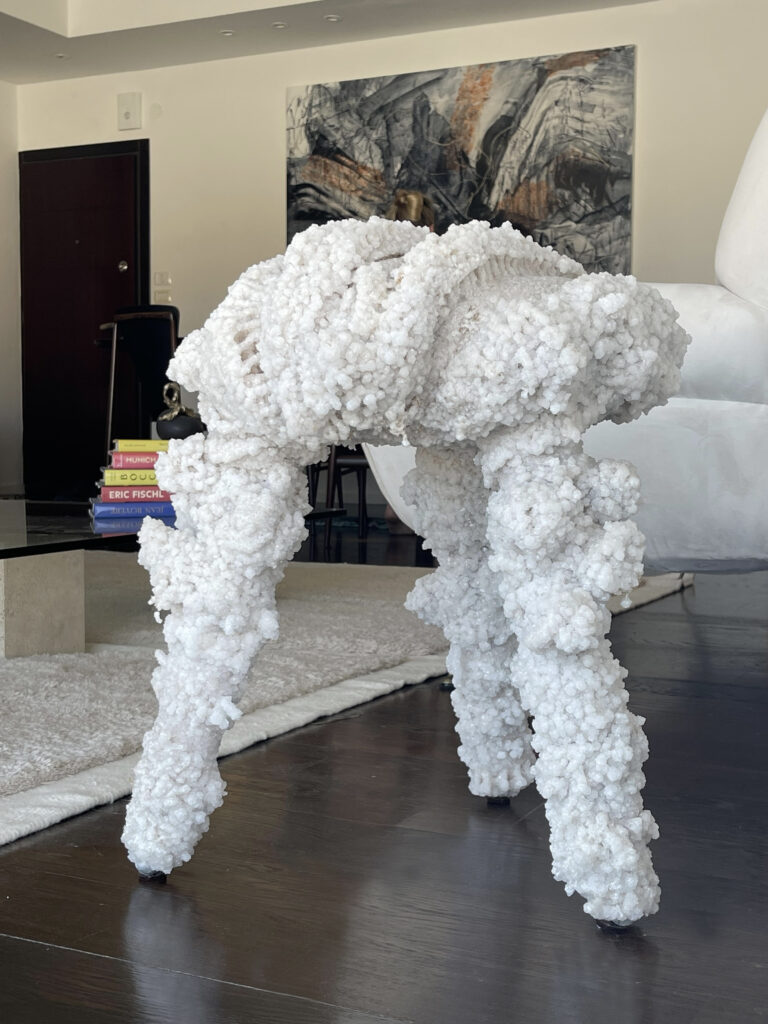
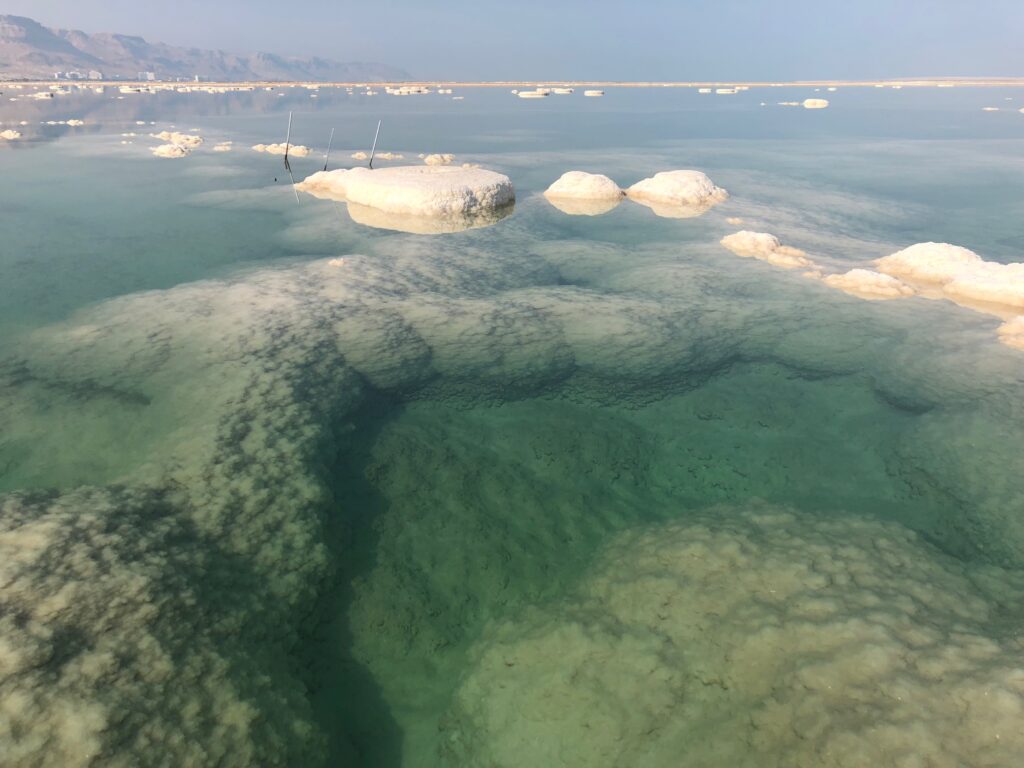
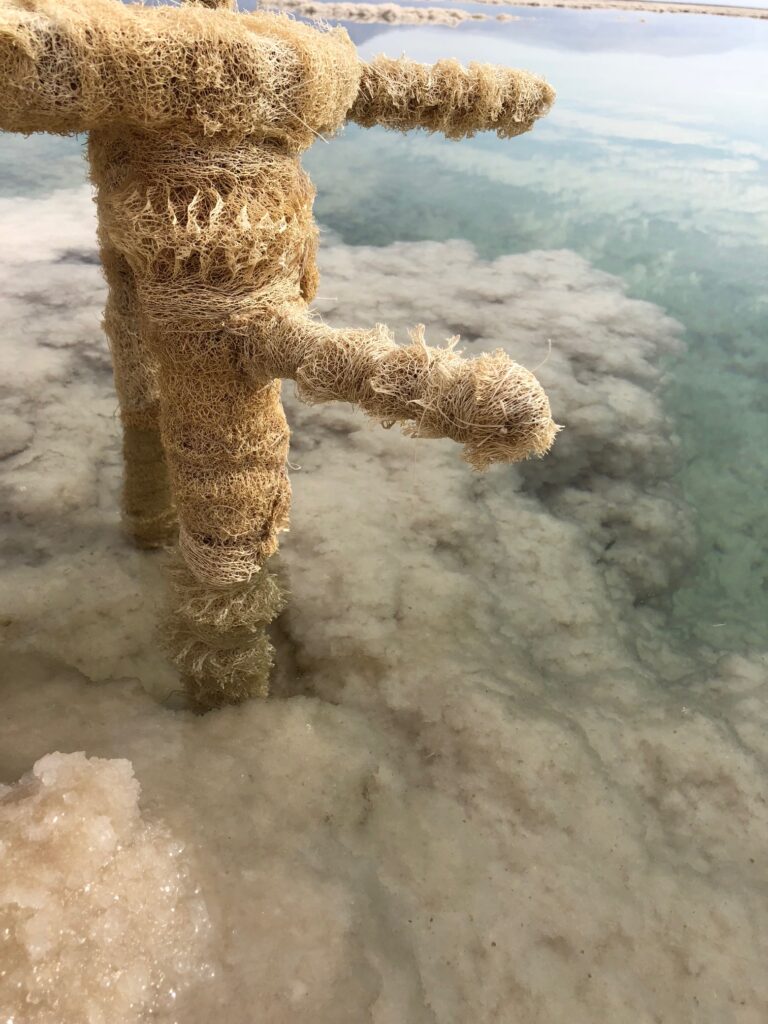
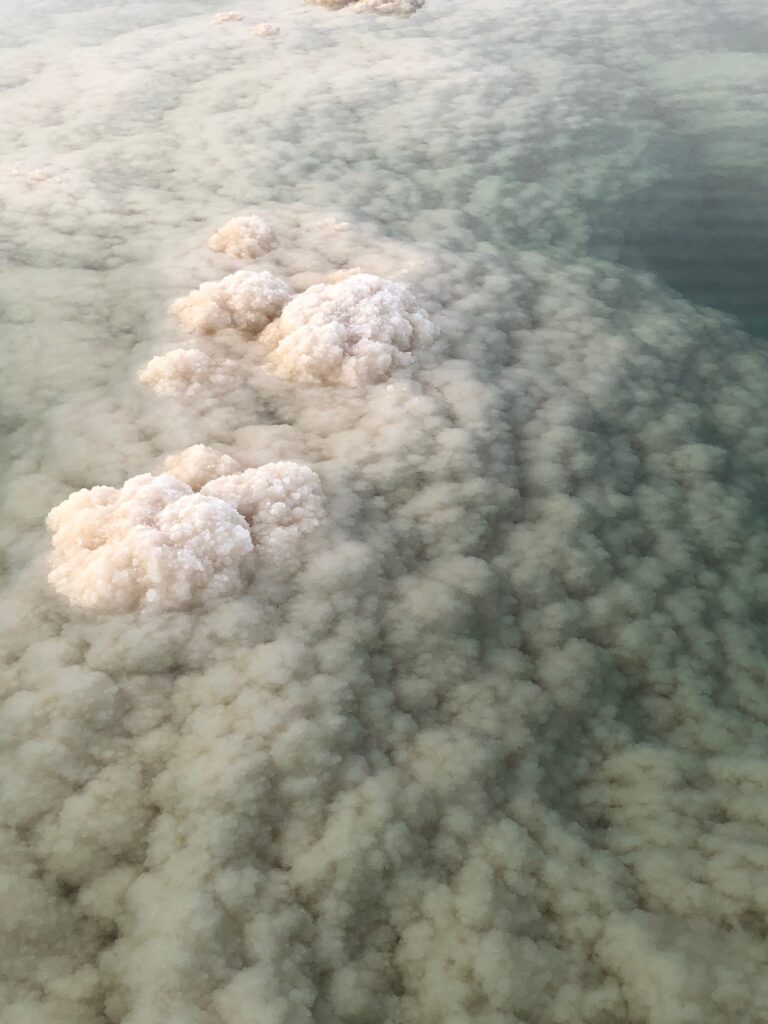
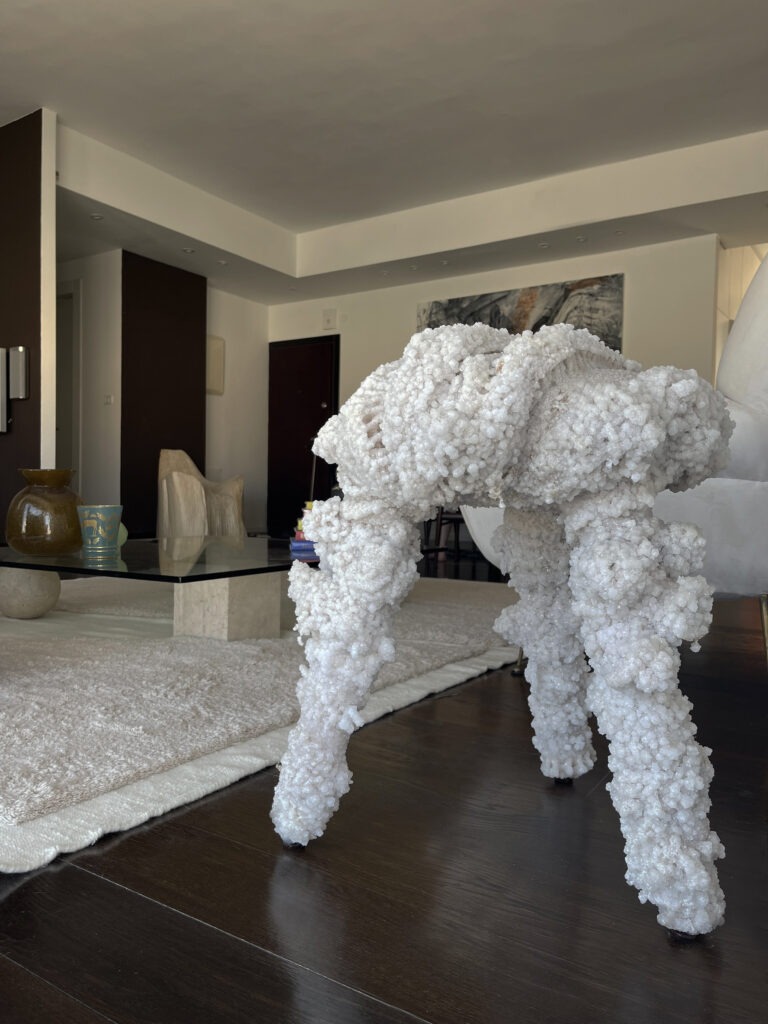
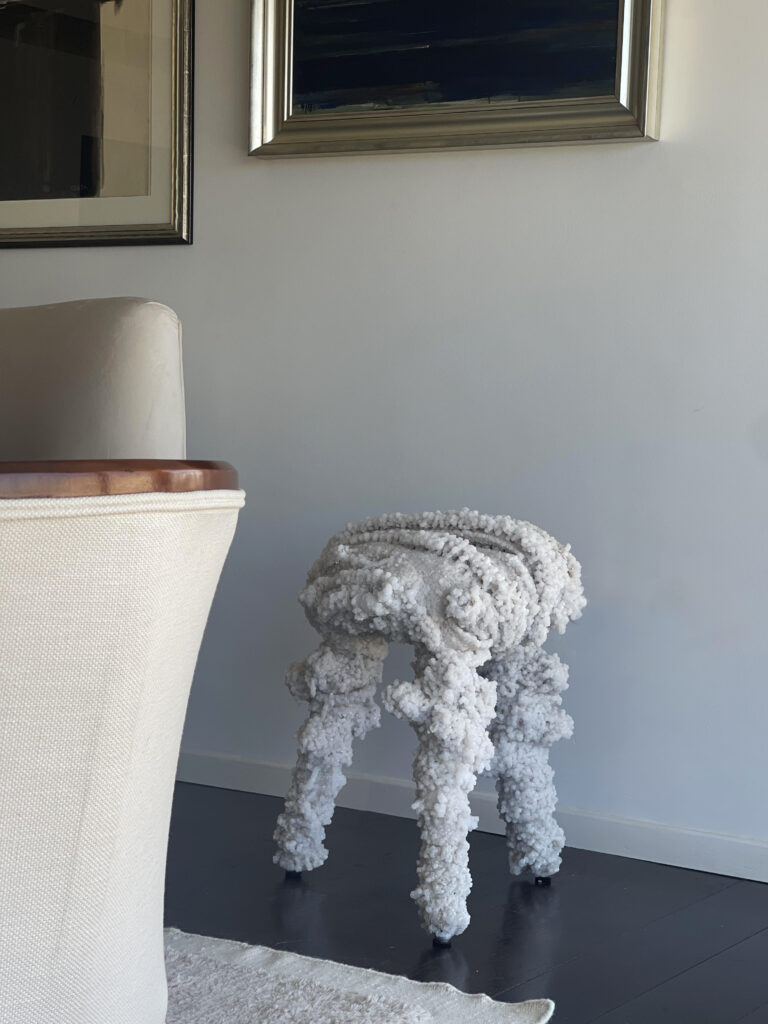

What a beautiful addition to your collection. Missing you in NYC!!!